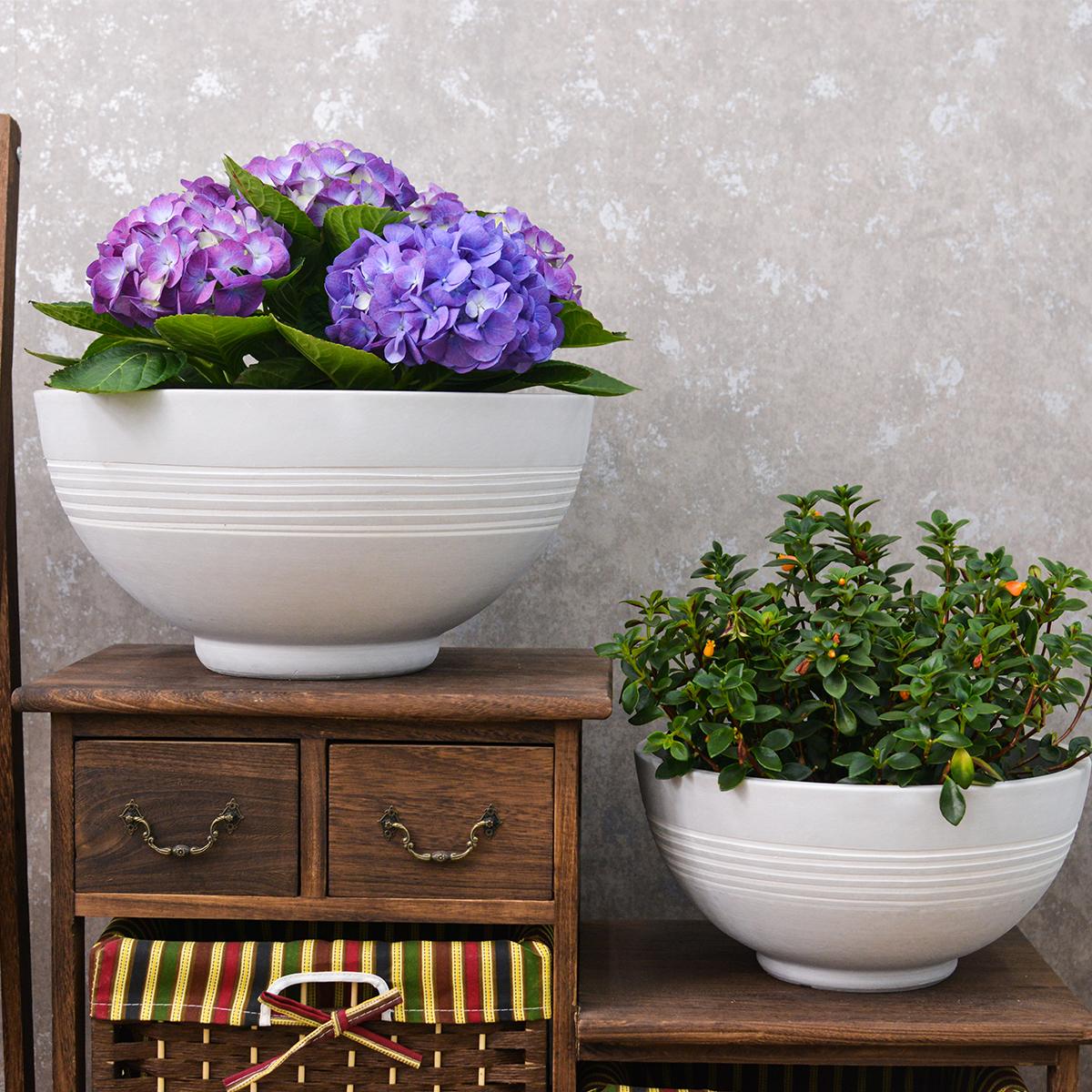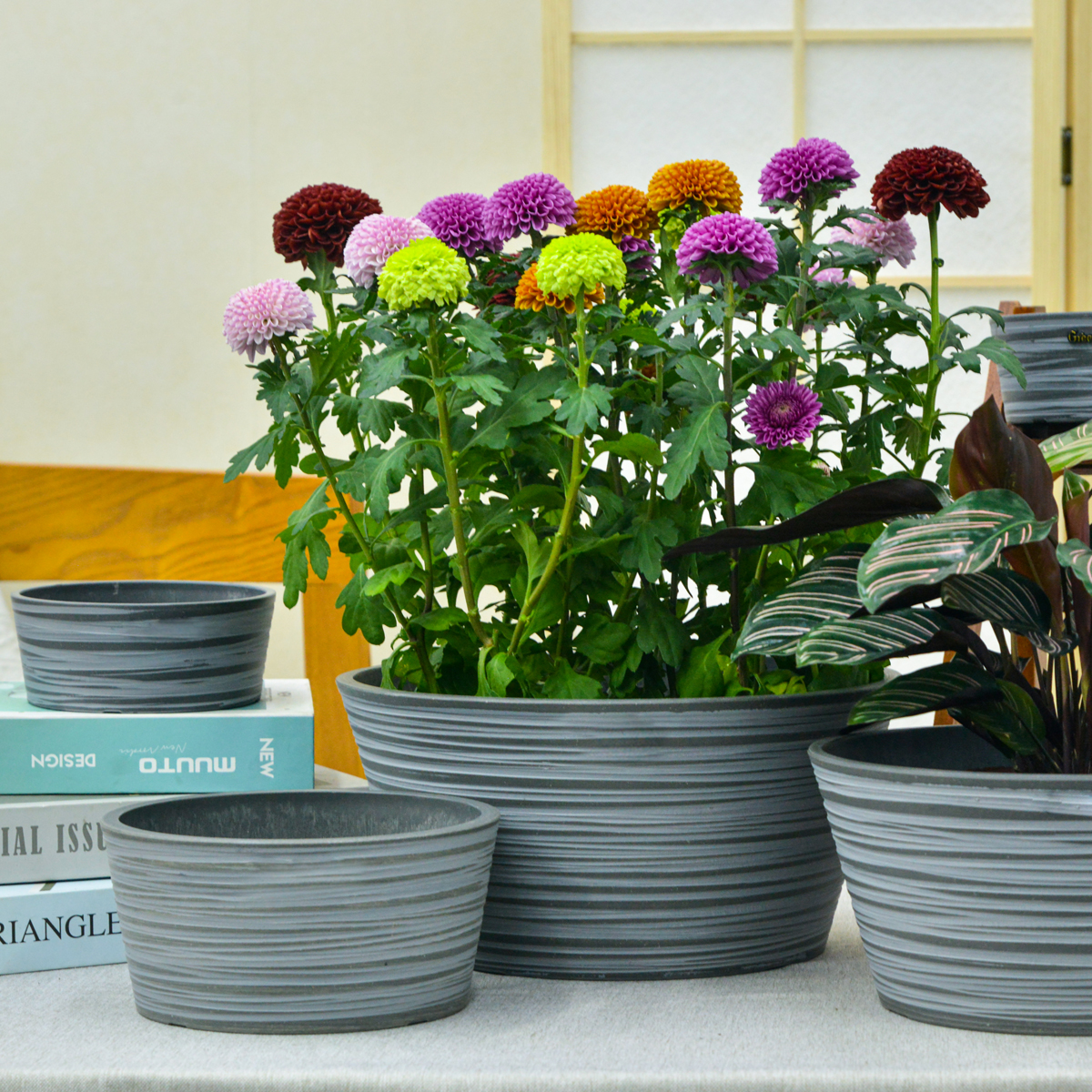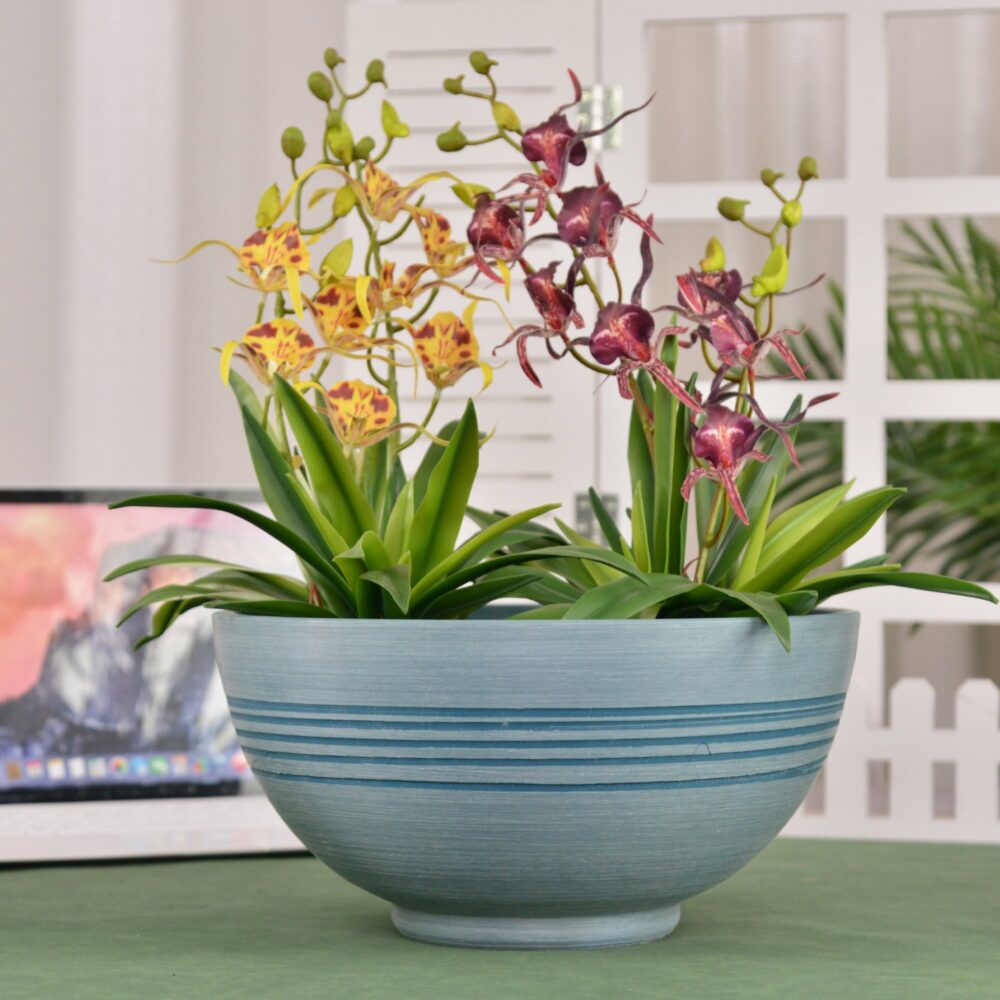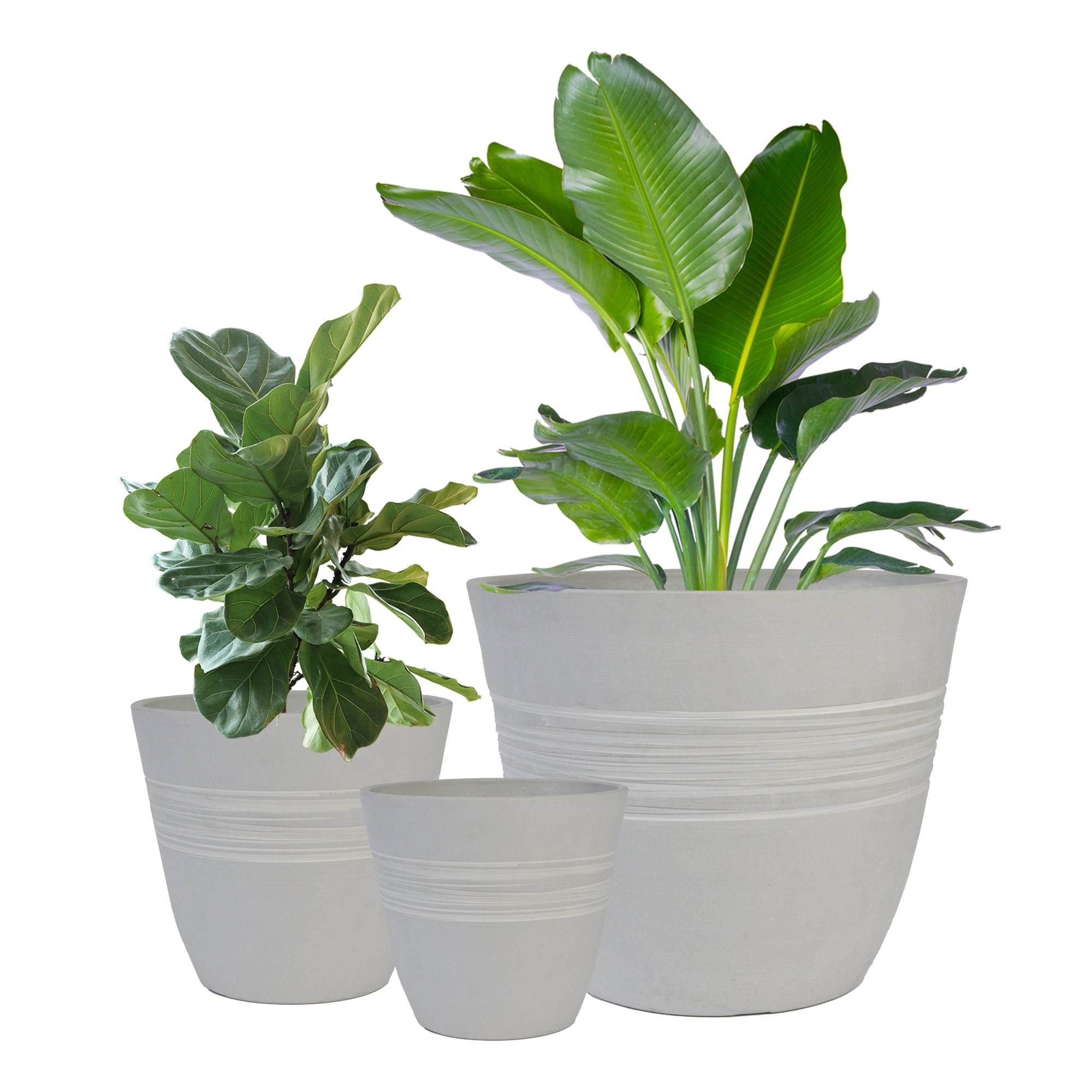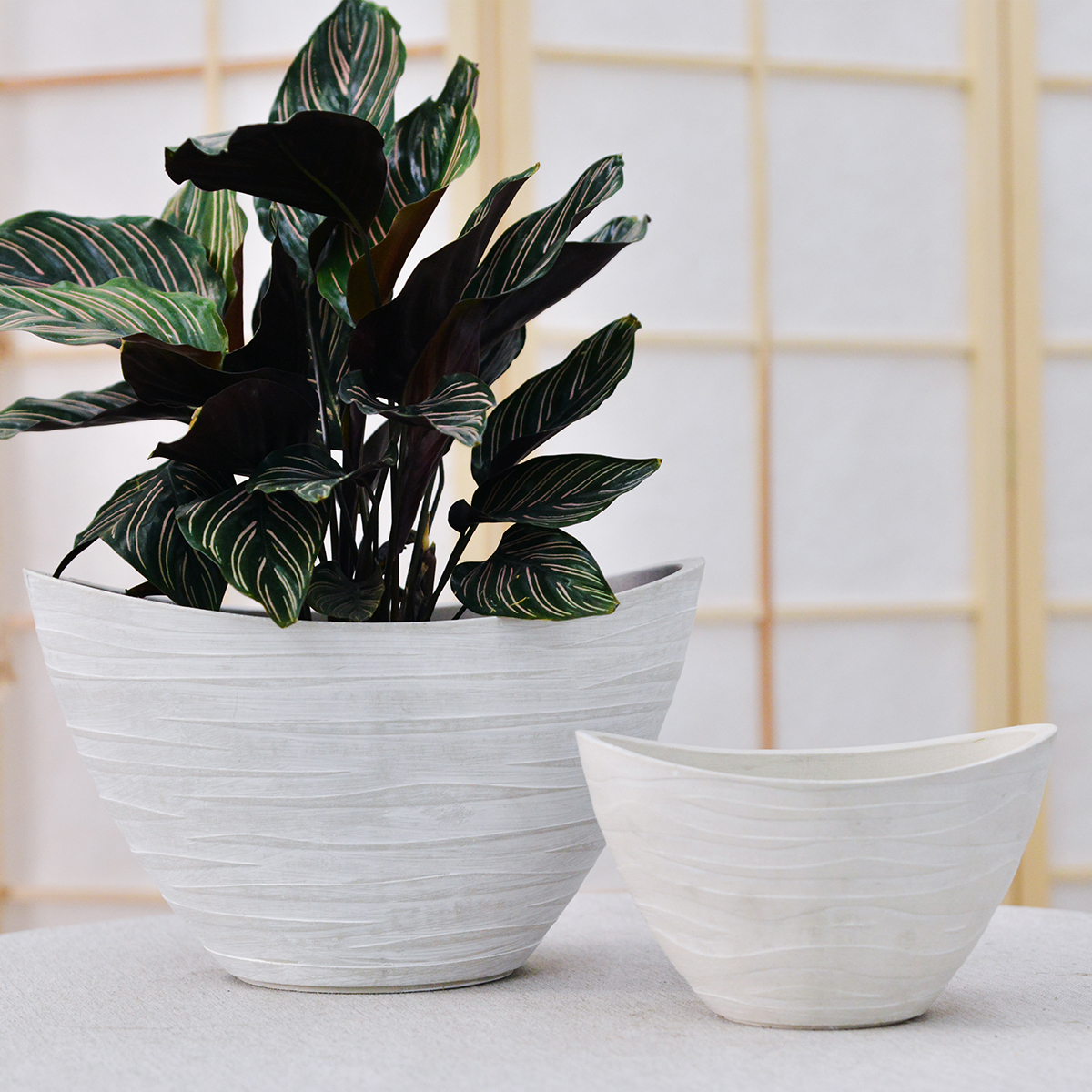Banana Peel Plus Lemon Juice, Save Money and Magic! The “Golden Duo” Used by Gardening Experts, Making Your Plants Green and Flowers Bright!
Have you ever spent a lot of money buying various fertilizers and pesticides to care for your home flowers and plants? In fact, to grow plants well, you don’t have to spend a fortune! Today, I’m going to reveal a money-saving and magical gardening trick. Just common kitchen ingredients – banana peels and lemons – can easily create a natural and effective plant care solution!
That’s right, these two seemingly unrelated ingredients, when cleverly combined, can turn waste into treasure and become a “golden duo” for gardening enthusiasts! This article will delve into the magical effects of banana peels and lemon juice in gardening and teach you how to easily make and use them at home, making your plants lush green, flowers vibrant, saving money and being environmentally friendly!
The Secret of the “Golden Duo”: The Gardening Magic of Banana Peels and Lemons
Banana peels and lemons, seemingly ordinary, contain rich gardening value. They each possess unique components, and when cleverly combined, they can unleash unexpected synergistic effects, providing all-round care for plants:
Banana Peel: Natural Potassium Fertilizer, the “Energy Source” of Plants
Banana peels have long been hailed as a natural potassium fertilizer because they are rich in potassium, an element essential for plant growth and development. Potassium is crucial for plant photosynthesis, flowering and fruiting, and resistance to diseases and stress. Using banana peels can provide the following benefits to plants:
- Promote Flowering and Fruiting: Potassium can promote plant flower bud differentiation, improve flowering quality, prolong flowering period, and help fruit expansion and ripening. The effect is particularly significant for potassium-loving plants such as roses, tomatoes, and strawberries.
- Strengthen Stems and Roots: Potassium can enhance the robustness of plant stems, improve plant lodging resistance, and make plants stronger. At the same time, potassium is also beneficial to root development and enhances the plant’s ability to absorb nutrients.
- Enhance Disease Resistance: Sufficient potassium can improve the osmotic resistance of plant cells and enhance plant resistance to drought, cold, and pests and diseases, reducing the occurrence of diseases.
- Supplement Trace Elements: In addition to potassium, banana peels also contain phosphorus, calcium, magnesium, and other trace elements, which can provide plants with more comprehensive nutrition and avoid poor growth caused by trace element deficiency.
Lemon: Natural Acidifier and Cleanser, the “Protective Guardian” of Plants
Lemons are not only delicious fruits but also a natural good helper in gardening. Lemon juice is acidic and rich in Vitamin C and citric acid and other components, mainly playing the following roles in gardening:
- Acidify Soil: Many flowering plants, such as azaleas, camellias, gardenias, blueberries, etc., prefer acidic soil. Lemon juice can effectively reduce soil pH, transforming alkaline soil into a slightly acidic environment more suitable for acid-loving plants, improving soil structure and promoting plant root absorption of nutrients.
- Clean Leaves: Lemon juice has natural cleaning and sterilizing effects. Diluted lemon water can be used to wipe plant leaves, removing dust, dirt, and water stains from leaves, making leaves greener and brighter, and also playing a role in preventing pests and diseases.
- Repel and Prevent Insects: The scent of lemon has a certain insect-repelling effect, which can repel aphids, ants, mosquitoes and other pests, reducing pest infestation. Citric acid itself also has certain insecticidal activity, which can inhibit the growth of some fungi and bacteria.
- Promote Seed Germination (To Be Verified): Some gardening enthusiasts believe that citric acid can soften seed shells, improving the germination rate of some plant seeds. However, this point still needs more scientific research to confirm and can be regarded as an experimental method.
Making and Using the “Golden Duo”: Simple to Learn, Remarkable Results
Now that you understand the gardening value of banana peels and lemons, the next step is to teach you how to make and use this “golden duo” to rejuvenate your plants:
Method 1: Banana Peel Lemon Water (Quick Fertilizer & Leaf Cleanser)
This is the fastest and most convenient method of use, which can simultaneously achieve the effects of fertilization and leaf cleaning:
Prepare Ingredients:
- Banana Peels: Fresh banana peels 1-2 (or more, adjusted according to needs).
- Lemon: Fresh lemon 1/2 (or 1/4, adjusted according to lemon size).
- Clean Water: 1-2 liters (adjusted according to container size).
- Container: Plastic bottles, glass bottles, or spray bottles with lids are all acceptable.
Making Steps:
- Banana Peel Treatment: Cut the banana peels into small pieces or strips for easier nutrient release.
- Lemon Juice Extraction: Cut the lemon in half and squeeze out the lemon juice, filtering out the lemon seeds. The lemon peel can be retained and used together to increase fragrance.
- Mix and Soak: Put the cut banana peels, lemon juice (and lemon peel) into the container and add clean water. Cover the lid and shake gently to mix evenly.
- Standing Soak: Place the container in a cool place to stand and soak for 24-48 hours to allow the nutrients from the banana peels and lemon to fully dissolve in the water. You can shake occasionally during this period.
- Filtration (Optional): After soaking, you can filter out the banana peel residue and only keep the liquid for use to avoid clogging the spray nozzle when spraying. Filtration is not necessary if used for root watering.
Usage Methods:
- Foliar Spray: Pour the prepared banana peel lemon water directly into a spray bottle, no dilution required (or slightly diluted, adjust according to plant acid tolerance), and spray evenly on both the front and back of plant leaves. 1-2 times a week can clean leaves, supplement foliar fertilizer, and prevent pests and diseases.
- Root Watering: Dilute the banana peel lemon water at a ratio of 1:10 or 1:20 (undiluted liquid: clean water) and directly water the plant roots, watering thoroughly. Once every 2-3 weeks to supplement potassium fertilizer and trace elements for plants, and acidify the soil.
Precautions:
- Concentration Should Not Be Too High: Lemon juice has a certain acidity. Sensitive plants should not be sprayed directly with undiluted liquid, but should be diluted before use, and observe plant reaction. For acid-loving plants, the proportion of lemon juice can be appropriately increased.
- Prepare Fresh and Use Immediately: Banana peel lemon water is best prepared fresh and used immediately to avoid deterioration from prolonged storage. If preservation is necessary, it can be refrigerated for 1-2 days, but the effect may not be as good as freshly made.
- Avoid Flowering Period: When foliar spraying, avoid the flowering period to prevent affecting flowers. Avoid spraying under strong midday sunlight in summer to prevent leaf scorching.
Method 2: Banana Peel Lemon Compost (Slow-Release Fertilizer & Soil Amendment)
This method can turn banana peels and lemon peels into compost, which can be used as slow-release fertilizer and soil amendment to improve soil quality in the long term and provide continuous nutrients for plants:
Prepare Materials:
- Banana Peels: A large amount of banana peels (the more the better).
- Lemon Peels: Lemon peels (about 1/3 of the amount of banana peels).
- Other Compost Materials (Optional): Such as fallen leaves, dry grass, kitchen waste, coffee grounds, tea grounds, etc., which can increase the nutrition and breathability of the compost.
- Container: Compost bin, flower pot, plastic bucket and other containers with good air permeability.
Making Steps:
- Material Treatment: Chop the banana peels and lemon peels, and also try to chop other compost materials to accelerate decomposition.
- Layering: Lay a layer of coarse-grained material (such as branches, coarse sawdust, etc.) at the bottom of the compost container to increase air permeability. Then layer the compost materials, one layer of dry material (such as fallen leaves, dry grass), and one layer of wet material (such as banana peels, lemon peels, kitchen waste), alternating between dry and wet, layer by layer. Wet materials can be slightly more.
- Appropriate Watering: Keep the compost materials moist, but not too wet. If the material is too dry, you can spray some water appropriately. If it is too wet, you can add some dry material to adjust the humidity.
- Turning and Ventilation: During the composting process, it is necessary to turn the compost regularly, every 1-2 weeks, to increase air circulation and accelerate fermentation.
- Fermentation Time: Compost fermentation time generally takes 1-3 months, depending on the temperature and type of materials. Fermentation is faster in hot summer and slower in cold winter. When the compost turns black-brown in color, loose in texture, has no odor, and only has the fresh smell of soil, it means that the compost fermentation is complete.
Usage Methods:
- Mixing Soil: Mix the fermented banana peel lemon compost with garden soil at a ratio of about 1:3 or 1:5(compost: garden soil) to use as potting soil. It can improve soil structure, increase soil fertility, and acidify the soil.
- Base Fertilizer and Topdressing: When planting plants, the compost can be used as base fertilizer mixed into the bottom of the soil. During plant growth, the compost can be scattered on the soil surface as topdressing, or mixed into the surface layer of the potting soil.
Precautions:
- Maintain Humidity and Ventilation: During the composting process, it is very important to maintain appropriate humidity and ventilation. Too dry or too wet is not conducive to fermentation. Regular turningis key to ensuring ventilation.
- Avoid Greasy Food and Meat: Avoid adding greasy food and meat to the compost materials, as they are prone to producing odor, breeding bacteria, and affecting compost quality.
- Use After Complete Fermentation: Unfermented compost contains undecomposed organic matter, which is easy to continue fermenting in the soil, generating heat, burning plant roots, and even attracting pests. Be sure to wait until the compost is completely fermented before use.
Summary of the Advantages of the “Golden Duo”: Natural, Economical, Multi-Effect
- Purely Natural Ingredients, Safe and Environmentally Friendly: Banana peels and lemons are natural food ingredients, containing no chemical components, and are very friendly to plants, soil, and the environment, causing no pollution.
- Turning Waste into Treasure, Economical and Affordable: Banana peels and lemon peels are household waste, turning waste into treasure is both environmentally friendly and economical, saving fertilizer and pesticide costs.
- Multiple Effects, Comprehensive Care: Integrates multiple effects such as soil acidification, potassium fertilization, leaf cleaning, and pest and insect repellent, comprehensively caring for healthy plant growth.
- Easy to Make, Convenient to Use: Easy-to-learn making method, flexible and diverse usage methods, very suitable for home gardening enthusiasts.
Precautions for Using the “Golden Duo”:
- Adjust Flexibly Depending on Plant: Different plants have different requirements for pH and nutrients. When using the banana peel lemon “golden duo,” it is necessary to adjust flexibly according to the type and growth habits of plants, and cannot generalize. For acid-loving plants, you can appropriately increase the proportion of lemon juice and reduce the dilution ratio. For alkaline-loving plants, it is not advisable to use lemon juice, and only use banana peels is sufficient.
- Observe Plant Reactions, Proceed Gradually: When using the banana peel lemon “golden duo” for the first time, it is necessary to test it on a small number of plants first and observe the plant growth response. If the plants grow well, then gradually expand the scope of use. If you find that plants have adverse reactions (such as yellowing or wilting leaves), you should stop using it immediately and analyze the cause to adjust the usage method.
- Cannot Replace Comprehensive Care: The banana peel lemon “golden duo” mainly plays an auxiliary role and cannot replace comprehensive care management measures such as watering, light, ventilation, and pest and disease control. To grow plants healthily, it is also necessary to comprehensively consider various factors and carry out scientific and rational maintenance.
Frequently Asked Questions:
Question 1: Is the banana peel lemon “golden duo” suitable for all plants?
Answer: Banana peels are suitable for most plants, especially potassium-loving plants and plants that prefer slightly acidic soil. However, lemon juice is acidic and not suitable for all plants. For alkaline-loving plants, such as cacti, succulents, and some herbaceous flowers, it is not advisable to use lemon juice, and only use banana peels is sufficient. For situations where it is uncertain whether plants prefer acidity or alkalinity, lemon juice should be used with caution, or a small-scale test should be carried out first.
Question 2: If there are no lemons, can other acidic substances be used to replace lemon juice?
Answer: Lemon juice is a natural organic acidic substance with good gardening effects and is relatively safe and environmentally friendly. If there are really no lemons, you can consider using other weakly acidic substances to partially replace lemon juice, such as:
- Edible Vinegar (White Vinegar, Rice Vinegar): Edible vinegar is also acidic and can be used after small dilution, but acetic acid concentration is higher, the dosage should not be too much, and the dilution ratio should be higher (such as 1:50 or 1:100). Frequent use is not recommended to avoid over-acidifying the soil.
- Ferrous Sulfate: Ferrous sulfate is a chemical acidic substance that has a dual effect of acidifying soil and supplementing iron elements. It is more effective for plants with severe iron deficiency chlorosis. However, chemical substances are relatively more irritating, the dosage should be strictly controlled, and frequent long-term use is not advisable. Pay attention to protection when using to avoid contact with skin and eyes.
It is not recommended to use industrial acidic substances, such as hydrochloric acid, sulfuric acid, etc., as they are too corrosive and easily damage plants and soil. The best choice is still natural lemon juice.
Question 3: Do banana peels and lemon peels need to be fermented before they can be used?
Answer: Banana peel lemon water does not need to be fermented. It can be used after soaking for 24-48 hours, mainly utilizing its water-soluble nutrients and acidity. Banana peel lemon compost must be fully fermented before use, otherwise unfermented organic matter is easy to damage plant roots. Different usage methods have different requirements for the degree of fermentation.
Question 4: Will homemade banana peel lemon fertilizer have an odor?
Answer: Fresh banana peels and lemon peels both have some fruity aroma. When making banana peel lemon water, if the soaking time is too long or the temperature is too high, it may produce some fermented sour smell, but the odor is generally not very strong and is acceptable. When making banana peel lemon compost, there may be some fermented sour smell in the early stage of fermentation, but the odor will disappear after fermentation is complete, leaving only a fresh smell of soil. Maintaining the breathability of the compost can effectively reduce odor generation. If you are more sensitive to odors, you can choose outdoor composting, or add some orange peel or grapefruit peel to the compost container, which can play a certain role in deodorization.

Conclusion
Banana peels and lemons, this seemingly inconspicuous “kitchen waste,” contains enormous gardening energy. They are natural fertilizers and guardians gifted by nature, safe, economical, and efficient. Learning to skillfully use this “golden duo” can not only make your plants thrive but also add greenery, environmental protection, and fun to your life. Take action quickly and let your balcony garden also use this magical “banana peel lemon magic”!
11TH
By greenship|2024-08-13T02:50:25+00:00August 13, 2024|Categories: Hand-carving Series|
KC3-09k
By greenship|2024-08-16T06:24:36+00:00August 16, 2024|Categories: Hand-carving Series|
11THD
By greenship|2024-08-13T02:52:20+00:00August 13, 2024|Categories: Hand-carving Series|
13 inch Planter for Indoor Plants, Set of 2 Modern Decorative Plant Pots with Drainage Hole, Cute Bowl Shape Flower Pots
By greenship-seo|2025-04-10T07:41:46+00:00January 10, 2025|Categories: Hand-carving Series|Tags: Decorative Flower Pots, Self-Watering Pots|
Plant Pots 6 inch 8 inch 12 inch for Indoor Outdoor Plants, Set of 3 Modern Decorative Planter with Drainage Hole, Decorative Flower Pots
By greenship-seo|2025-04-10T06:38:40+00:00January 16, 2025|Categories: Hand-carving Series|Tags: Decorative Flower Pots|
20YB
By greenship|2024-08-16T05:37:57+00:00August 16, 2024|Categories: Hand-carving Series|


